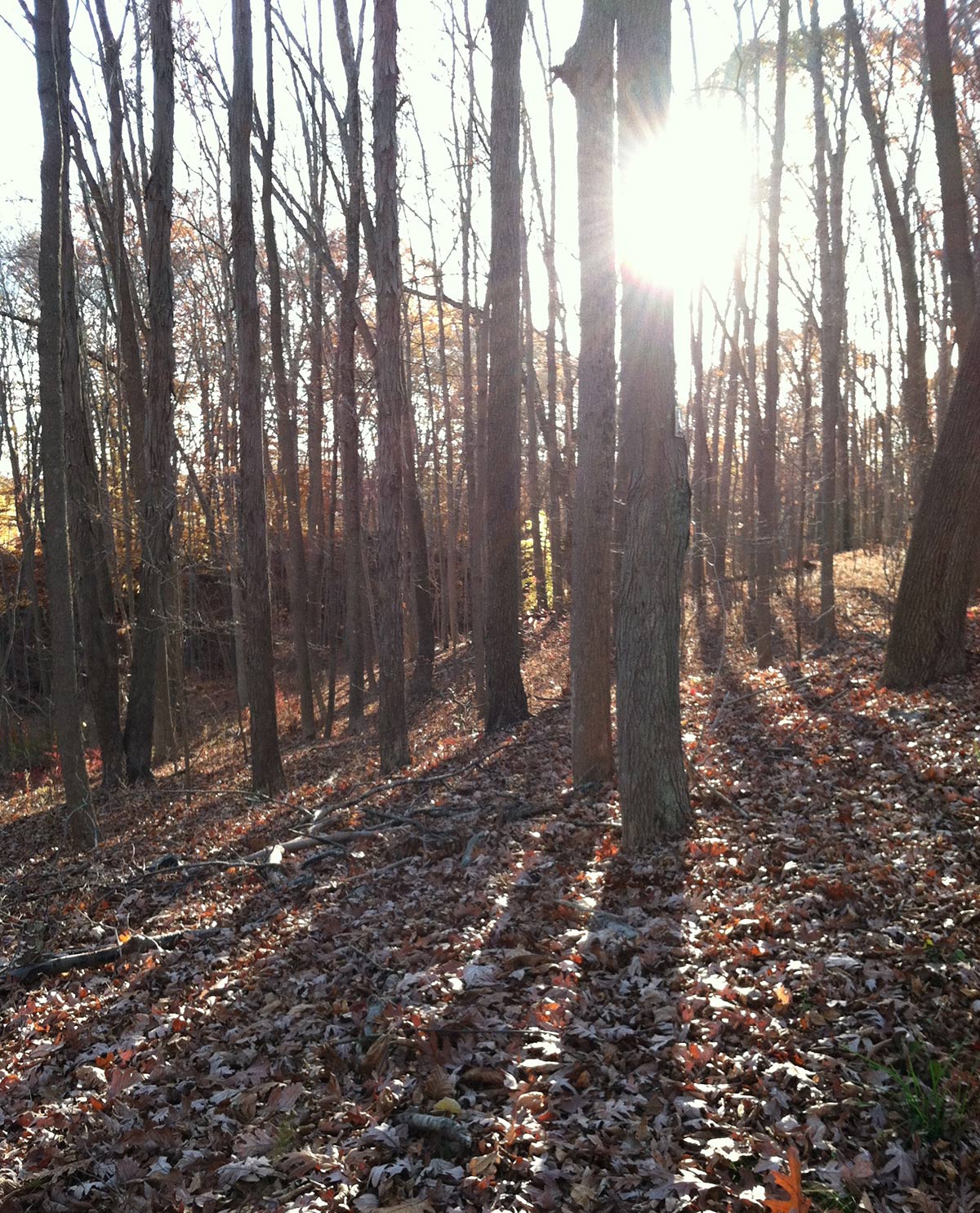“You got a good grip?”
“I got it.”
This exact sequence was spoken by the same two people on two separate occasions approximately 60 years apart. Alan, the younger brother, is the nervous questioner. John, the confident respondent.
In the first instance, Alan is eight years old and John is fourteen. It’s a snow day, and Alan is edging out onto the crust of ice that covers the pond. He has a rope knotted around his waist, and John holds the loose end.
“You gotta hold it tight,” Alan calls back before sliding his foot again.
“I know,” John says and squeezes the rope through his woolen gloves. He gives a tug so Alan can feel the connection.
The ground and the sky around them are a continuous white. The trees that ring the pond are bare as pencil scratches on this surface.
“You sure you’ll be able to hold me?” Alan says. He seems to look for reassurance, but he also goes ahead and keeps venturing out on the ice. He’s where he wants to be. His fear converts to joy as he thinks of his brother watching and seeing his daring.
“You barely weigh anything,” John replies.
Then they both hear the crack, a sound that’s solid as a kick in their guts. Their eyes find each other’s, and then Alan is waist deep, kicking his legs in the water and sweeping his arms over the snowy ice like he’s trying to make snow angel wings that could lift him.
John pulls on the line. His feet slip. The angle’s bad, like the rope’s caught under the rim of the ice, and he can’t really lift his brother. He sets his feet better and leans back.
Alan’s legs have gone straight past cold to agony, as if he’s swirling them in liquid pain, not water. But he pushes enough with his arms on a bit of solid ice and John tugs hard enough on the rope and Alan gets one leg out and then the other. They don’t feel like legs. They’re frozen in pain, but he looks down, and he can see what they are.
John pulls hard on the rope, running away from the pond and dragging Alan to the edge. He watches from the distance of the rope as Alan pushes to hands and knees, moving slowly and stiffly. John’s terrified. His heart is beating madly. His body starts shaking, as if he was the one who’d been frozen. Then he imagines showing up in the kitchen with his little brother sopping wet. He imagines the water pooling on his mother’s linoleum and running toward the living room carpet, too much to stop. He knows she’ll blame him and start lavishing punishments.
John watches to see that Alan can stand straight without falling back over, and then he runs.
###
Years pass, and John goes to college about a four-hour drive away. He comes home at the expected times and sits with his family at the required number of meals. But he never wants to stay around, even when Alan proposes playing card games or working on John’s car together.
When it comes time for Alan to go to college, he chooses somewhere close enough to let him live at home – even though he got acceptance letters from all the schools where his parents and teachers had wanted him to apply. But their mother started falling over. Her speech slurred. She needs someone to help her through the most basic gestures of existence. Alan stays close. John is living in Denver. He comes back for one holiday each year, and he calls every other week.
Decades pass, and Alan and John’s mother dies before either of them can marry or have children. Alan doesn’t want his father to be alone with memories in the old house, so he stays. John moves from Denver to Portland to Sacramento to Reno. Each time, Alan flies out and stays in a nearby hotel for four nights. He helps with the move, and he gets a glimpse of his brother’s life.
Alan becomes president of the bank where he’d had his first checking account. He rows – a midlife obsession – and becomes ranked in the top 20 for his age in the country. Their father dies in his sleep. John retires after leading an engineering team at one of the early tech companies.
Then one day, Alan falls walking to the office bathroom – his toned and capable body just crumples. Then it happens again. Then he starts dropping things and has to supply himself with unbreakable mugs and plates. The tests follow, then the doctors who talk softly while shaking their heads.
John learns everything through carefully phrased emails; he can’t talk to Alan for more than a minute or two. John’s mind goes white, and he feels like he could vomit out a stream of braided misery until the outflow exhausts his remaining life. It’s easier not to think about it.
But Ginnie, the lady John let move into his condo, says he has to go. He won’t have another chance. By the time John agrees, Alan has moved to a facility in town. It’s fall, and Ginnie coaxes John with a plan to drive through the New England foliage after seeing Alan.
###
So then they’re all in Alan’s room. Alan’s in a wheelchair positioned next to the window – his daytime station. Ginnie leans on the bent hospital bed, looking comfortable. She’s already straightened Alan’s back pillow and brought him water to drink through a straw, though she never met him before.
John stands at the edge of the room, leaning against a bureau, as if he would back away if it weren’t blocking him. He thinks about the rental car they have out in the lot. He likes the sound system, which has big, chunky, digital numbers he can easily see.
He says it’s good Alan has a single room… for the second time. He mentions the cool weather, and then regrets it because, of course, Alan is stuck here. But Ginnie says he should take Alan out, it’s so lovely. When he tries to demur, she finds an attendant who says it’s okay and even points out the way. Alan says he’d like it. They can tour the parking lot, he says. It’s a scenic parking lot.
John wraps his fingers around the textured rubber grip and eventually figures out how to release the brakes from the wheels. The chair slides easily. He bangs the bed on the way by and then pilots Alan’s right foot into a waste bin, which topples.
Alan asks if he has a license to operate this thing.
John says he had to bribe the examiner but he got the damn license.
They slide down the hall, which has windows on one side and oil paintings of mostly red objects on the other. Alan feels a strange contentment, knowing his brother is pushing him. He hasn’t forgotten all his discomfort, much less the darkening pressure of being in touching distance of his end, but they don’t matter as a greater pain has eased.
He tells John he usually does wheelies in the hall.
John slaloms the chair, and they both chuckle without making any sound.
John doesn’t know himself in that second. Is he the kid who has to bring little Alan with him when he goes out to play, even though the other kids make fun of him? Is he the man who is glad when he picks Alan up at the airport but then wants him to go away before they finish dinner? Is he the man who hides from his sick brother like he could hide from his own loss? He feels like every moment in the past could have been so different and now nothing can be helped. It’s a grief he can’t control. He wants to hide again.
They reach the top of the ramp that leads down to the outer door, and John stops. The angled linoleum floor reflects rectangles of sunlight. His heart beats hard. He’s not used to pushing a wheelchair, and that floor looks slick.
He can’t see going back and admitting he’s scared of a handicapped accessible entryway, so he lets the front wheels tip over onto the descent.
“You got a good grip?” Alan asks.
“I got it.”
Alan feels a sudden dread. He’s gotten used to letting others move him, wipe him, prop him up. He knows he has only the barest wick of life left. But he can feel as much terror as anyone at losing control, and something doesn’t feel right.
“You gotta hold it tight,” Alan calls back.
“I know,” John says.
Alan’s dread is transmuting to giddiness, and he is starting to like the sensation of gliding, almost like rowing. He likes being a little daring with his brother participating.
John feels like his feet are moving too fast, and his torso is starting to tip forward to keep a grip on the handles.
“You sure you’ll be able to hold me?” Alan asks as he imagines his brother wheeling him this fast through the door and out into the parking lot, and then continuing.
“You barely weigh anything,” John replies, but he knows it’s too late.
He catches a toe on the weirdly sticky floor, and he goes down. His knees impact hard.
His hands come off the handles, and the wheelchair runs free. At that moment, they both hear the click and whoosh as someone triggers the automatic door from outside, and then Alan toboggans right through it. The last thing John sees is his brother’s nearly bald head lit from outside. Then he hears a woman call out in surprise and a muffled crash as the wheelchair contacts the railing out there.
IN THIS ISSUE

- BIG MOODY MOUNTAIN, by Tia Creighton
- MARK OF THE HEALER, by Sam Holloway
- ADVICE FROM THE WORLD’S SECOND GREATEST NETFLIX PITCHER, by Jonathan
- HERRINGBONE! HERRINGBONE!, by The Editors
- APOCALYPSE STORYTIME, by Tia Creighton
- SO FAR, WE REGRET HAVING YOU, by Tia Creighton
- INCREMENTAL REPORTS, by The Editors
- TOP OF THE HEAP, by Tia Creighton
